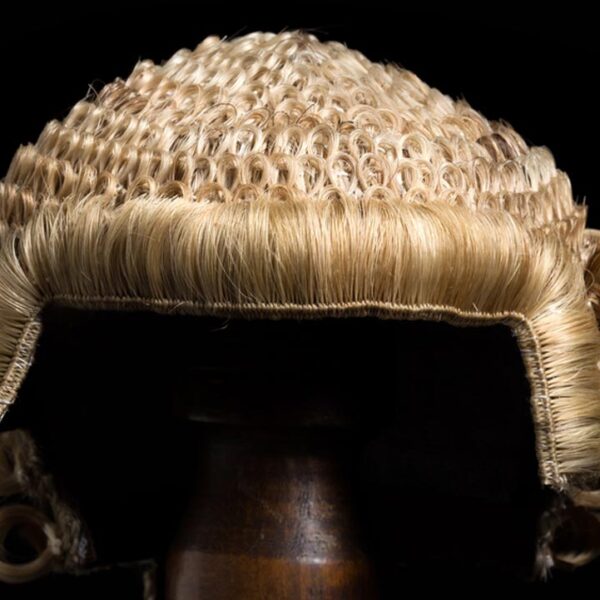The Nigerian constitution our constitution pursuant to section 43 of the 1999 CFRN (as amended) provides for the right to own property. Bank accounts fall within the category of intangible properties, hence when a customer though a mandate form applies to open an account with any Bank of his choice and same is acted up and such account is created, it becomes the exclusive property of such a customer, and such transaction creates a banker/customer relationship between the bank and the customer with certain rights and duties acrrued thereto. It must be noted that such accounts can either be savings/deposit accounts and/or current accounts as the case may be.
This exclusive right on the account accrues the account holder the right to mandate and perform transactions of any nature such as withdrawals, deposits etc.
To encode the right to privacy that account holders enjoy, all accounts have certain specific Protective features such as
- Account number
- Bank Verification Number (BVN)
- Card details
- Transaction Password
- Token password etc.
Each of these features enables the holder of account to have totally access and control over his account. Hence, any person without such details as they relate to these specific protective features cannot have access to any customer’s account.
There are however instances or cases where an account has been hacked by an unknown person for the purposes of perpetuating fraud. It must be noted that no account can be hacked or tempered with if one or none of the aforementioned specific features have been disclosed inadvertently, unknowingly or carelessly to a third party.
Such unauthorised access could lead to fraudulent withdrawals of money from the account without the authority or consent of the holder of the account.
An example of unauthorised access to an account is the rampant “Yahoo boys fraud” who impersonate being personnel s of Banks to obtain bank account details of individuals for the purposes of having access to their account.
Again, there are instances where the holder of an account performs a transaction of transfer but the money is erroneously sent to a wrong account most often caused by an incorrect account number used for the transaction.
There are also instances of fraudulent transfer of money (ies) into accounts arising from fraudulent represwntations.
In any of thesee instances, the issues has always been “HOW CAN A CUSTOMER RECALL SUCH FUNDS.
- The first procedure is for the customer to report such issues to the bank, through a written application stating all relevant facts as they relate to the transaction complained of accompanied with any proof of such erroneous/fraudulent transaction.
Upon receipt of such application, the bank usually places a “PND” (meaning Post no debit) on such account recieving the sum to restrict it from further transaction while they investigate the complaint.
The Bank in respecting the exclusive right of possession enjoyed by the customer will always make efforts to reach the recieving customer (whether fraudulently or erroneusly recieved) to confirm if the complaint made against it’s account is true or not.
Where the complaints are true and the recieving customer consents that such erroneous or fraudulent funds be reversed back to the complainant(customer whose account the money was moved from) such money(ies) will be moved immediately and the issue resolved.
- There are instances where the recieving customer cannot be reached or refuses to consent to the recall of such funds back to the complainant, then the bank will always request for a COURT ORDER. A court order for the purposes of this nature of proceedings is intended to mandate the recieving bank to recall/reverse the funds back to the complainant customer’s account.
Counsel will be requested to draft and file an application by way of motion exparte, supported by an affidavit disclosing all facts related to the transaction as well as written addresses. also all documents sought to replied upon must be annexed to such application. documents necessary here would include receipts of erroneous transaction, statements of account displaying such debits, a copy of the application for such complaint to the bank etc.
The jurisdiction of the court to hear this application is dependent on the amount involved in the transaction and the place where the transaction took place.
E.g Where such transaction took place in Calabar for a sum less than N1M , the application will be heard at the Magistrates court.
The parties to this specie of application are
* The complaining customer (Applicant)
* The recieving Customer(Respondents)
*The recieving bank
where the fraudulent monies are still in the account of the recieving Customer, then upon being served with the order, the recieving bank will reverse the erroneous sum back to the complaining customer.
In instances where there are no monies in the account, then the applicant must seek the relief of placing a restrictiin on such account until monies to the tune of the fraudulently recieved sum is accumulated and reversed back to the applicant’s account.
There are instances also where the identity of the reciever is not know, the complaining customer is required to write a petition on such transaction to the bank as well as the security agency who will through their investigation fish out the perpetuator of such act.
in conclusion, time is always of the essence in transactions of this nature as where a customer delays to report such erroneous/fraudulent transaction, the chances that such monies would be arrested by the judgment is slim and may lead to the frustration of even making further steps for such recovery.
It is therefore advised that account holders protect those specific features attached to their bank accounts to avoid the bad image of fraud.
SOURCE: Barrister NG – https://www.barristerng.com/recalling-fraudulent-erroneous-transactions-in-nigerias-banking-sector-a-mountain-or-a-molehill-by-akiki-i-g-esq/







